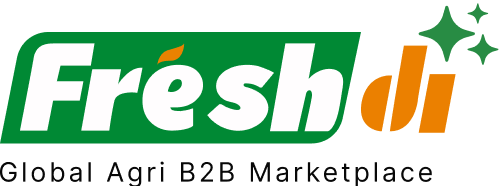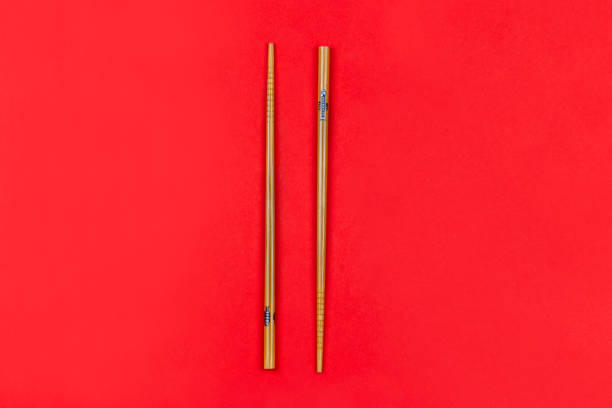Introduction – Understanding Indonesia’s Reputation for Quality Chopsticks
When it comes to sourcing eco-friendly, durable, and high-quality chopsticks, Indonesia is steadily carving out a reputation as a go-to destination. Why? It’s not just about competitive pricing—Indonesia offers a unique blend of natural advantages and deep-rooted craftsmanship.
With its tropical climate, fertile volcanic soil, and rich bamboo biodiversity, Indonesia provides ideal conditions for cultivating resilient bamboo—the material of choice for most chopsticks. Beyond nature, the country is also embracing sustainable innovation, such as recycling used chopsticks into new products, which not only reduces waste but also elevates product quality and appeal.
As global demand for sustainable utensils grows, understanding Indonesia’s strengths and quality standards becomes essential for businesses that want to partner with the right suppliers and maintain a competitive edge.
Why Indonesia? Climate, Soil, and Sustainability
Let’s break it down. Indonesia’s tropical weather—warm, wet, and humid year-round—allows bamboo to flourish. In places like Java and Bali, the soil is rich in nutrients, particularly due to volcanic activity, giving bamboo the strength and density needed for high-performance chopsticks.
But it’s not just about growth. Traditional Indonesian communities, especially in Borneo, have long used bamboo for crafting tools and utensils, reflecting generations of expertise in bamboo handling.
Recently, innovation has taken center stage. In 2023, ChopValue Indonesia launched a microfactory in Bali, recycling over a million used chopsticks into premium products. This initiative speaks volumes about the country’s commitment to sustainable, circular manufacturing models.
Defining & Verifying Chopsticks Excellence in Indonesia
So, what makes a chopstick “high-quality”? It’s not just about how it looks. It’s about durability, food safety, material composition, and certifications. In Indonesia, quality is governed primarily by the SNI (Indonesian National Standard) system.
Types of Standards Based on Material:
- Melamine Chopsticks: Must comply with SNI 7322:2008, which addresses chemical safety and food safety.
- Stainless Steel Chopsticks: Fall under SNI 8753:2020, covering structure, hygiene, and chemical migration.
- Wooden/Bamboo Chopsticks: May be subject to BPOM (Food and Drug Authority) regulations and general food-contact safety rules.
Certification Process Breakdown:
- Assessment: Products go through Type 4 or Type 5 conformity assessments.
- Testing: Conducted by accredited labs to ensure the chopsticks are food-safe and durable.
- Certification: Issued by a licensed body (e.g., LSPro).
- Labeling: SNI mark and electronic tracking codes must appear on certified products.
Freshdi Insight:
On Freshdi, RFQs (Request For Quotations) often include strict demands for certifications, especially for food-contact safety and sustainable sourcing. Buyers are increasingly asking for traceable bamboo origins and proof of SNI compliance.
Top 3 Verified Chopsticks Suppliers in Indonesia – Leaders in Quality
Sourcing from reliable suppliers makes all the difference. Based on export performance, international presence, buyer feedback, and quality verification on Freshdi, here are the top 3 chopsticks suppliers in Indonesia as of June 2025:
1. PT Indo Mitra Bersama
- Specialties: Wooden and bamboo chopsticks, along with matching spoons, forks, and knives.
- Certifications: SNI-compliant, food-grade tested, and environmentally certified.
- Export Markets: Japan, South Korea, U.S., and Western Europe.
- Strengths: Known for precision in finishing and consistent quality across batches.
2. PT Java Eco Tableware
- Specialties: Eco-friendly bamboo chopsticks customized for hospitality and retail.
- Certifications: Holds FSC and ISO 22000 certifications.
- Export Markets: Singapore, Australia, UAE, and Canada.
- Strengths: Offers private labeling and biodegradable packaging options.
3. PT Kalimantan Bamboo Craft
- Specialties: Handcrafted bamboo chopsticks using traditional methods.
- Certifications: Local SNI and BPOM-compliant.
- Export Markets: Niche markets in Europe, especially Germany and the Netherlands.
- Strengths: Small-batch, artisan production with a focus on sustainability.
Dynamic Ranking Note:
Supplier rankings can shift monthly based on export volume, buyer reviews, and quality benchmarks. Platforms like Freshdi often feature “Suppliers of the Month/Quarter” based on real-time RFQ performance and customer satisfaction.
Market Navigation – Quality Demand Dynamics & Consumer Insights
Why are businesses now looking for premium chopsticks from Indonesia? The trend is global. Consumers are becoming more eco-conscious, shifting from disposable plastics to reusable bamboo and wood alternatives.
What Buyers Want in 2025:
- Traceability: Knowing where the bamboo was sourced.
- Certifications: Food-safe, BPA-free, and SNI-compliant.
- Sustainability: Recycled or biodegradable materials.
- Aesthetics: Smooth finishes, engravings, or color options for retail.
In regions like North America and Europe, chopsticks are no longer just utensils—they’re lifestyle accessories. Whether it’s for sushi nights or gifting, quality matters.
Freshdi Insight:
Search trends and buyer requests on Freshdi show an uptick in demand for custom-branded chopsticks and eco-packaging. Buyers often ask for samples with QR-code traceability, a feature only a few top suppliers currently offer.
Checklist for Evaluating Chopstick Suppliers in Indonesia
Not sure how to pick the right supplier? Here’s a quality-focused checklist to guide your evaluation:
✅ SNI Certification (based on material)
✅ Food-contact material safety compliance
✅ Traceable bamboo sourcing or FSC-certification
✅ Sustainable or recycled production methods
✅ Positive reviews on platforms like Freshdi
✅ Responsive communication and sample availability
✅ Export history to your target market
✅ Ability to meet MOQ and lead times
✅ Private labeling or customization options
✅ Verified business license and factory photos
Key Takeaways
- Indonesia is emerging as a top hub for high-quality, eco-friendly chopsticks thanks to its climate, soil, and growing manufacturing base.
- Certifications are critical—SNI standards differ by material, and compliance ensures product safety.
- Freshdi is a powerful ally in sourcing, allowing buyers to verify suppliers, analyze RFQs, and access up-to-date market insights.
- Top suppliers like PT Indo Mitra Bersama lead the way with global exports, quality credentials, and sustainable practices.
- Consumer demand is evolving, with buyers seeking traceable, branded, and sustainable chopsticks for retail and foodservice use.
Future Outlook – What’s Next for Chopstick Sourcing in Indonesia?
As global sustainability regulations tighten and consumer preferences shift, Indonesia is well-positioned to meet the growing demand for eco-conscious, high-quality chopsticks. Expect to see:
- More microfactories like ChopValue Indonesia popping up in other regions.
- Enhanced governmental support under the “Making Indonesia 4.0” roadmap.
- Digital traceability becoming a standard, not a bonus.
- Customized and private-label offerings becoming mainstream.
Platforms like Freshdi will continue to empower buyers with real-time supplier verification, RFQ analytics, and dynamic sourcing tools to stay ahead in an evolving market.
References
- ChopValue Indonesia Microfactory Opening
- Intertek SNI Standards for Melamine Utensils
- Intertek SNI Standards for Metal Utensils
- BPOM and Food Contact Material Regulations
- Understanding SNI Mark and Process
- Manufacturing Growth in Indonesia
- Indonesian Manufacturing Strategy
- Freshdi B2B Sourcing Platform
FAQs
1. Are Indonesian chopsticks suitable for international food safety standards?
Yes, especially when SNI-certified. Many suppliers also hold additional certifications like ISO and FDA compliance for export markets.
2. Can I request custom branding on chopsticks from Indonesian suppliers?
Absolutely. Many suppliers, especially those on Freshdi, offer private labeling and logo engraving for bulk orders.
3. How do I verify if a supplier is legitimate?
Use platforms like Freshdi where suppliers are pre-vetted, and certifications are verified. You can also request factory audits or virtual visits.
4. What materials are most common for chopsticks in Indonesia?
Bamboo and wood are the most popular due to their availability and sustainability. Some factories also produce stainless steel and melamine variants.
5. How long does it take to receive a bulk order of chopsticks from Indonesia?
Lead times vary, but most suppliers offer 2–4 weeks for standard orders. Custom orders may take longer depending on design and packaging requirements.
Ready to source high-quality, certified chopsticks from Indonesia? Visit Freshdi to start comparing verified suppliers and submit your RFQ today.


